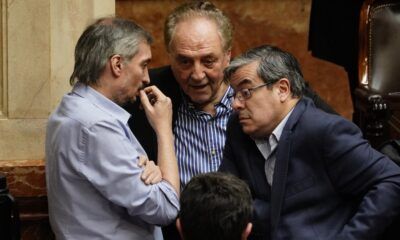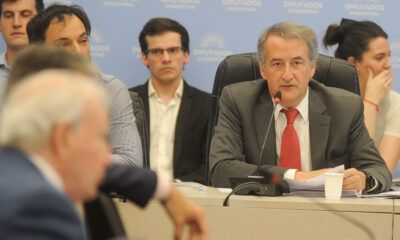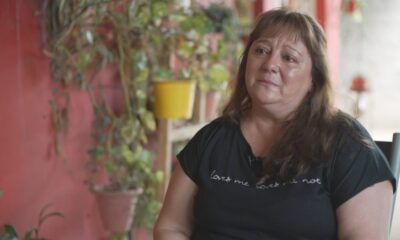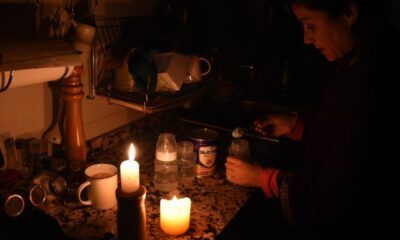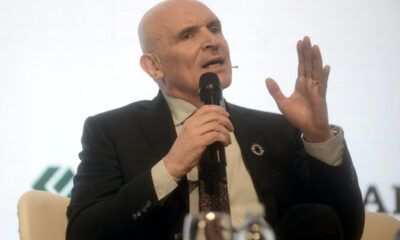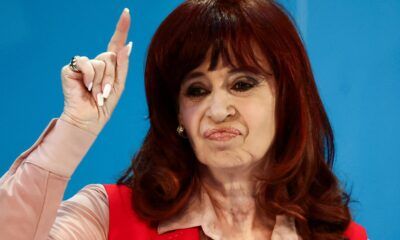INTERNACIONAL
Controversy over Lebanese nun’s prayer for Hezbollah highlights Lebanon’s internal debate over group

The nun stood in front of a group of young students at a Lebanese Christian school and asked them to pray for the «men of the resistance» in southern Lebanon who she said were defending the country.
The men to whom nun Maya Ziadeh was referring are members of the Lebanese Shiite militant group Hezbollah, which has been clashing with Israel across a volatile border for nearly six months, becoming a critical regional player as the Israel-Hamas war persists in Gaza.
A video capturing Ziadeh’s comments was widely circulated online earlier this month, outraging some who accused her of brainwashing the children and imposing her political views. Others rallied to her support, commending her stance as courageous and honorable.
HEZBOLLAH FIRES HEAVY ROCKETS AT NORTHERN ISRAEL AFTER DEADLIEST DAY OF ISRAELI STRIKES ON LEBANON
The war of words that unfolded highlighted larger, longstanding schisms in Lebanon over Hezbollah, now amplified by the Lebanon-Israel border clashes and by fears that an already crisis-hit Lebanon could be dragged into an all-out war.
«There are sharp (political) divisions over Hezbollah’s weapons,» said Sami Nader, director of the Institute of Political Science at Saint Joseph University of Beirut. And while there’s wide support for the Palestinian cause, he said, there are «differences over the degree of such support and how to provide it.»
Lebanon is home to multiple religious groups. Politically, the presidency is given to a Maronite Christian, the parliament speaker post to a Shiite Muslim and the prime minister’s post to a Sunni Muslim.
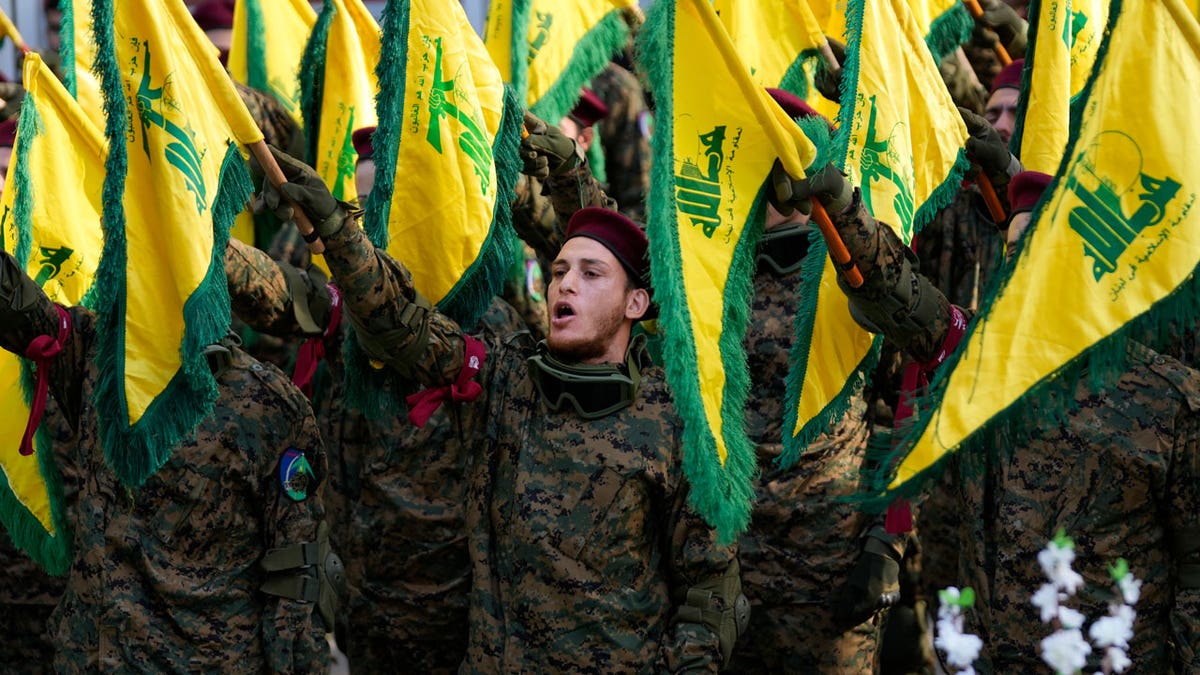
Hezbollah fighters attend the funeral of their commander, Wissam al-Tawil, in the village of Khirbet Selm, south Lebanon, on Jan. 9, 2024. Conflict surrounding a Lebanese Christian nun’s praise of Hezbollah highlights longstanding schisms in the small country over the militant group. (AP Photo/Hussein Malla, File)
Although Hezbollah has alliances with figures from other religious groups, the base of its support lies in the Shiite community, while many Christians and Sunnis accuse the group of hijacking the country. The nun’s speech generated added attention — and for some, furor — in particular because it came from a Christian religious figure.
In the recent video, Ziadeh called for praying for the «children, people and mothers of the south and … for the men of the resistance,» describing those who fail to do so as «traitors,» a characterization that many found troubling, especially given the young age of her audience. Others saw a message of love in her call to pray for the people of southern Lebanon.
«In the south, there are students your age who say that ‘our only dreams are to protect our land,’» the nun told the children.
Lebanese Christian anti-Hezbollah activist Antonios Tawk criticized Ziadeh on X, formerly known as Twitter. He called on the Maronite Catholic church to act «because our children are being brainwashed.»
Meanwhile, Gebran Bassil, head of the Free Patriotic Movement party, Hezbollah’s main Christian ally, argued online that when Ziadeh called for prayers, «she was implementing the teachings of Jesus.»
Ziadeh couldn’t be reached for comment.
Officials with Hezbollah, a Shiite military and political powerhouse in Lebanon, say the group’s cross-border strikes are in support of Gaza and argue they divert some Israeli forces that would otherwise be focused on Hamas in Gaza, where the territory’s health officials say the Israel-Hamas war has killed more than 32,000 Palestinians.
The Iran-backed Hezbollah began attacks on Oct. 8, a day after Hamas launched its attack on southern Israel, killing some 1,200 people and taking hostages, triggering the latest war in Gaza.
To Hezbollah’s critics in Lebanon, the fighting is a reminder that the group’s weapons constitute «a threat …, not only to internal peace, but because they give Hezbollah a monopoly over war and peace decisions outside state structures,» said Randa Slim, senior fellow at the Washington, D.C.-based Middle East Institute. «These are existential decisions for the Lebanese population and their representatives are not involved in this decision-making process.»
What Hezbollah is doing is «destroying Lebanon,» Charles Jabbour, a senior member of the Christian Lebanese Forces party, said during a heated debate on a local TV talk show. «I’m sure that large parts of (Lebanon’s) Shiites, don’t want their homes destroyed or have their children, women and men killed.»
Lina Khatib, an associate fellow at the London-based think tank Chatham House, said even Hezbollah’s allies among the Christians are uncomfortable with its «unilateral decision to spark a fight with Israel,» but that this hasn’t translated into a split between Hezbollah and its main Christian political ally.
The Free Patriotic Movement’s Bassil has argued that Hezbollah’s deterrence prevented Israel from launching an all-out war on Lebanon. But Bassil, who is sanctioned by the United States, also said he opposed Hezbollah’s stance that it would only stop attacking Israeli positions when a cease-fire is reached in Gaza.
Among Lebanese Shiites, who were the group most affected by Israel’s 18-year occupation of south Lebanon ending in 2000, many see Hezbollah’s actions through a different lens.
Houssein Khalil, the Shiite owner of a tourism business, said he believes Hezbollah’s cross-border strikes were necessary, not only to support the Palestinians, but because «when Israel gets done with Gaza … it would have turned to Lebanon,» if Hezbollah hadn’t intervened.
Khalil said that while his business has suffered, he views such losses as short-term pain.
«I support not just Hezbollah, but whoever defends me, my dignity and my rights as long as they’re able to defeat the Israeli enemy and to protect me,» he said. «The (Lebanese) state’s capabilities are limited.»
When Lebanon’s 1975-90 civil war ended, Hezbollah was the only militia allowed to keep its weapons as it was leading the fight against Israeli forces that were occupying parts of southern Lebanon at the time.
The group later fought a monthlong war with Israel in 2006, the toll of which is fresh in the mind of the Lebanese.
Today, Lebanon is in the grips of a crippling economic crisis. Some fear that, even if the current fighting doesn’t turn into a full-blown war, a state of low-level conflict could become the new normal, further straining the economy and society.
Many Sunni Muslims have criticized Hezbollah over the years for having weapons, especially after the group used them in internal fighting in Beirut in 2008. However, for some, anger over the Israeli offensive in Gaza and the plight of Palestinians—who are mostly Sunni— appear to have overshadowed concerns over Hezbollah’s weapons for now, providing common ground.
«The massacres committed by the Israeli enemy and the destruction makes it compulsory to stand up,» said Abed Nakhle, from a predominantly Sunni Beirut neighborhood. «I might have an opinion, but we’re with them (Hezbollah) in this cause.»
Some Sunni fighters have joined Hezbollah’s militants at the border.
Still, some from Hezbollah’s strongholds in the south say they’re feeling the pain.
The fighting along the border has displaced many in both countries, caused casualties and wide damage in towns and villages.
CLICK HERE TO GET THE FOX NEWS APP
Khatib said a large majority of Lebanese «do not want to see all-out war between Hezbollah and Israel.» This sentiment, she added, cuts across sectarian lines.
In the mountain village of Ghbaleh, some of the children’s parents complained about Ziadeh’s speech, said Youssef Nasr, secretary-general of the Catholic Schools in Lebanon. He denied reports that Ziadeh had been fired from the school and told The Associated Press that the nun was spending some time in a monastery for isolation and reflection.
Nasr said the case of Ziadeh was overplayed by the media, adding that despite the school’s respect for freedom of opinion, «we prefer that during class hours no disputable matters be discussed that might be approved by some parents and rejected by others.»
INTERNACIONAL
Netanyahu gifts Trump controversial item that helped turned tide in war against Hezbollah
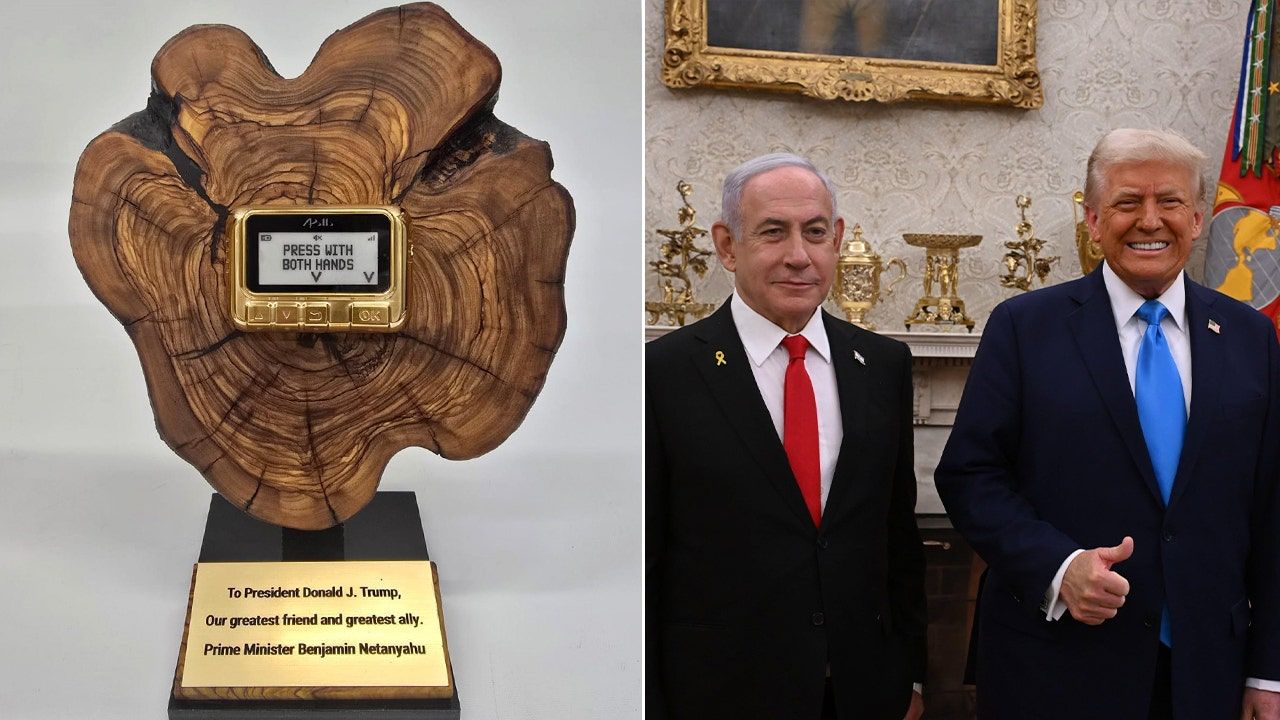
Israeli Prime Minister Benjamin Netanyahu gave President Donald Trump an unusual gift during his most recent trip to Washington, D.C., this week — a gold-plated pager.
The present was a nod to the controversial mass attack believed to have been carried out by Israel’s Mossad intelligence agency against Hezbollah Sept. 17, 2024, in which thousands of pagers, walkie-talkie-like devices and radios simultaneously exploded across Lebanon and Syria around 3:30 p.m.
A statement from Netanyahu’s office to Fox News Digital said, «The pager symbolizes the prime minister’s decision that led to a turning point in the war and marked the beginning of Hezbollah’s strategic collapse.
ISRAELI DEFENSE MINISTER ORDERS IDF TO PLAN FOR GAZANS TO LEAVE IN LINE WITH TRUMP’S CONTROVERSIAL PROPOSAL
Israeli Prime Minister Benjamin Netanyahu gave President Donald Trump a gold-plated pager during a visit to the White House Feb. 6, 2024. (Israeli Government Press Office)
«This strategic operation reflects Israel’s strength, technological superiority and tactical ingenuity in confronting its adversaries.»
An image obtained by Fox News Digital showed the pager mounted to a wooden plaque with a message on the device that said, «Press with both hands,» accompanied by a double downward arrow sign, the same message that reportedly showed moments before the devices detonated.
The plaque also came with a message to Trump calling him Israel’s «greatest friend and ally.»
The statement appears to be the first time Netanyahu’s office has publicly commented on the strike against the terrorist network in the summer.
Though the attacks were intended to target Hezbollah terrorists, the explosions also injured, maimed and killed civilians, including at least two children. In total, the United Nations Office of the High Commissioner for Human Rights (OHCHR) reported that 32 people were killed and 3,250 others were injured.
ALLIES AND FOES REJECT TRUMP’S ‘RIVIERA’ PLANS FOR GAZA: ‘NEW SUFFERING AND NEW HATRED’
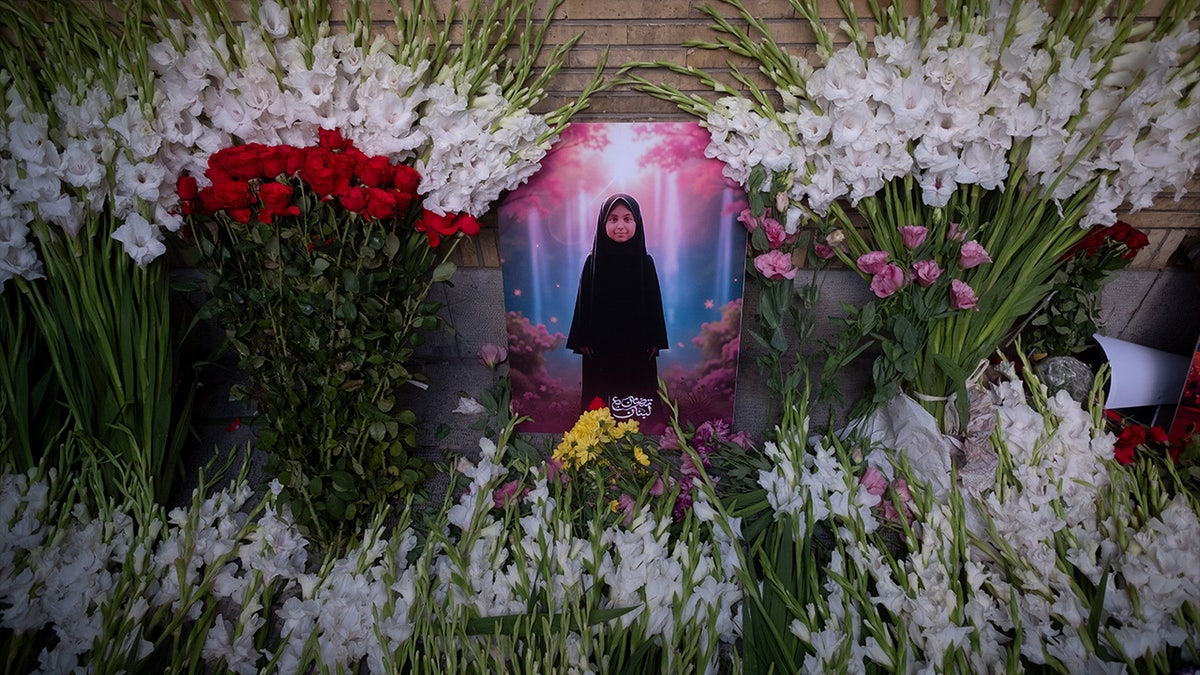
A symbolic portrait of a young Lebanese girl who was killed in a deadly pager attack is pictured next to flowers placed in front of the Lebanese embassy in northern Tehran, Iran, Sept. 18, 2024. (Morteza Nikoubazl/NurPhoto via Getty Images)
U.N. Human Rights experts condemned the operation and said the indiscriminate nature of the attacks amounted to «war crimes.»
«These attacks violate the human right to life, absent any indication that the victims posed an imminent lethal threat to anyone else at the time,» one expert told the OHCHR. «Such attacks require prompt, independent investigation to establish the truth and enable accountability for the crime of murder.»
Despite the limited number of terrorists killed in the widespread attacks, Israeli officials have championed the operation as a successful psychological blow to Hezbollah.
TRUMP’S GAZA ‘TAKEOVER’ RANKLES AMERICA FIRST CONSERVATIVES, ALLIES SUGGEST NEGOTIATOR-IN-CHIEF IS AT WORK
Though Israel was immediately suspected of being involved in the reported years-in-the-making operation, Jerusalem had not officially confirmed its role publicly before.
However, by November 2024, Israeli reports revealed comments leaked from a Cabinet meeting in which Netanyahu was quoted as saying, «The pager operation and the elimination of [Hezbollah leader Hassan] Nasrallah were carried out despite the opposition of senior officials in the defense establishment and those responsible for them in the political echelon.»
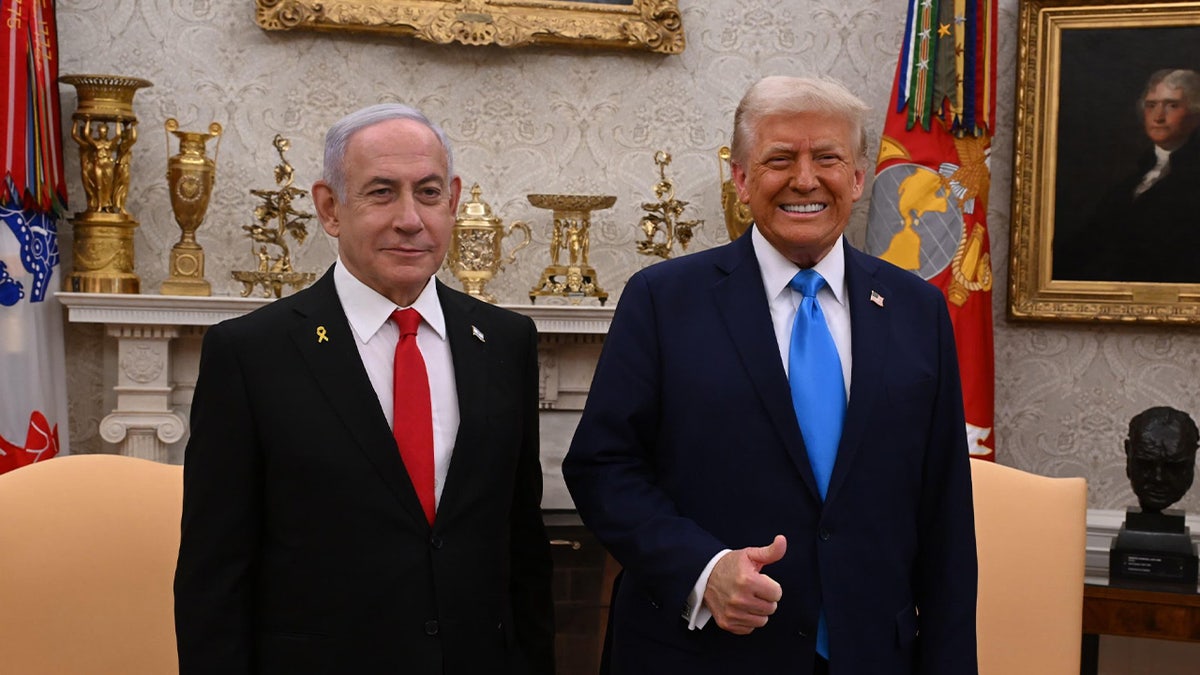
President Donald Trump hosts Israeli Prime Minister Benjamin Netanyahu at the White House in Washington, D.C., Feb. 4, 2025. (Avi Ohayon (GPO)/Handout/Anadolu via Getty Images)
CLICK HERE TO GET THE FOX NEWS APP
The prime minister’s comments were an apparent dig at former Defense Minister Yoav Gallant, who he fired just weeks prior to the comments over disagreements regarding the war effort against Hamas and Hezbollah.
Neither the White House nor the U.N. immediately responded to Fox News Digital’s requests for comment.
Yael Rotem-Kuriel contributed to this report.
-
CHIMENTOS2 días ago
Julieta Prandi contó lo que nunca antes sobre Poné a Francella: “Pasé situaciones incómodas”
-
POLITICA3 días ago
Ola de calor: casi 50.000 usuarios se quedaron sin luz en el AMBA y hubo apagones en el interior
-
POLITICA2 días ago
José Luis Espert, polémico sobre la inseguridad: «A los chorros hay que llenarlos de agujeros y colgarlos en una plaza pública»
-
POLITICA2 días ago
El Gobierno denunció a Cristina Kirchner por cobrar en sus jubilaciones el plus por zona austral mientras reside en la Ciudad
-
POLITICA2 días ago
«Lanus en la oscuridad: Cortes de luz eternos y gestión cuestionada de Julián Álvarez»
-
POLITICA23 horas ago
Tras la salida de la OMS, Javier Milei evalúa ahora que Argentina abandone el Acuerdo de París

